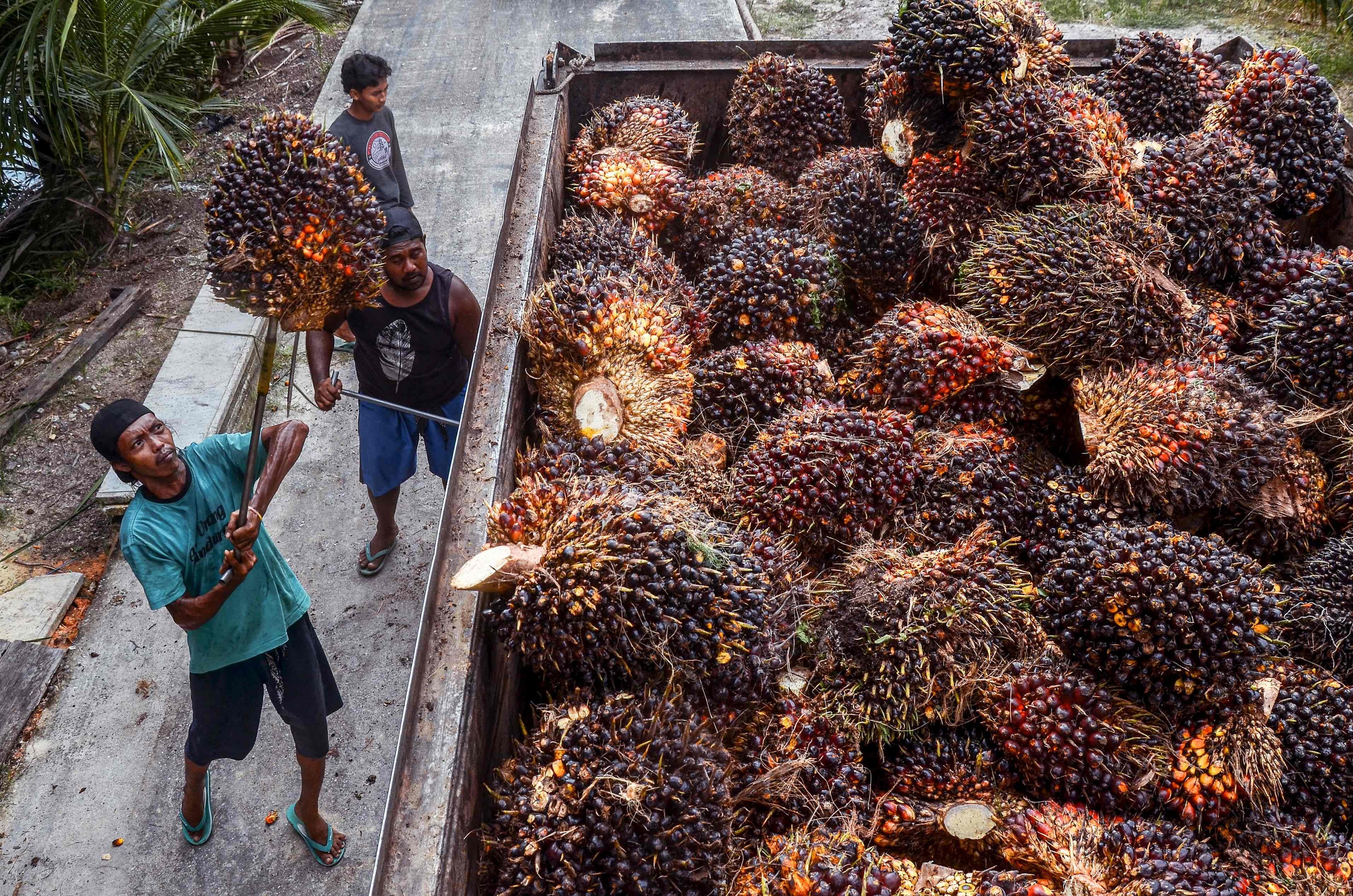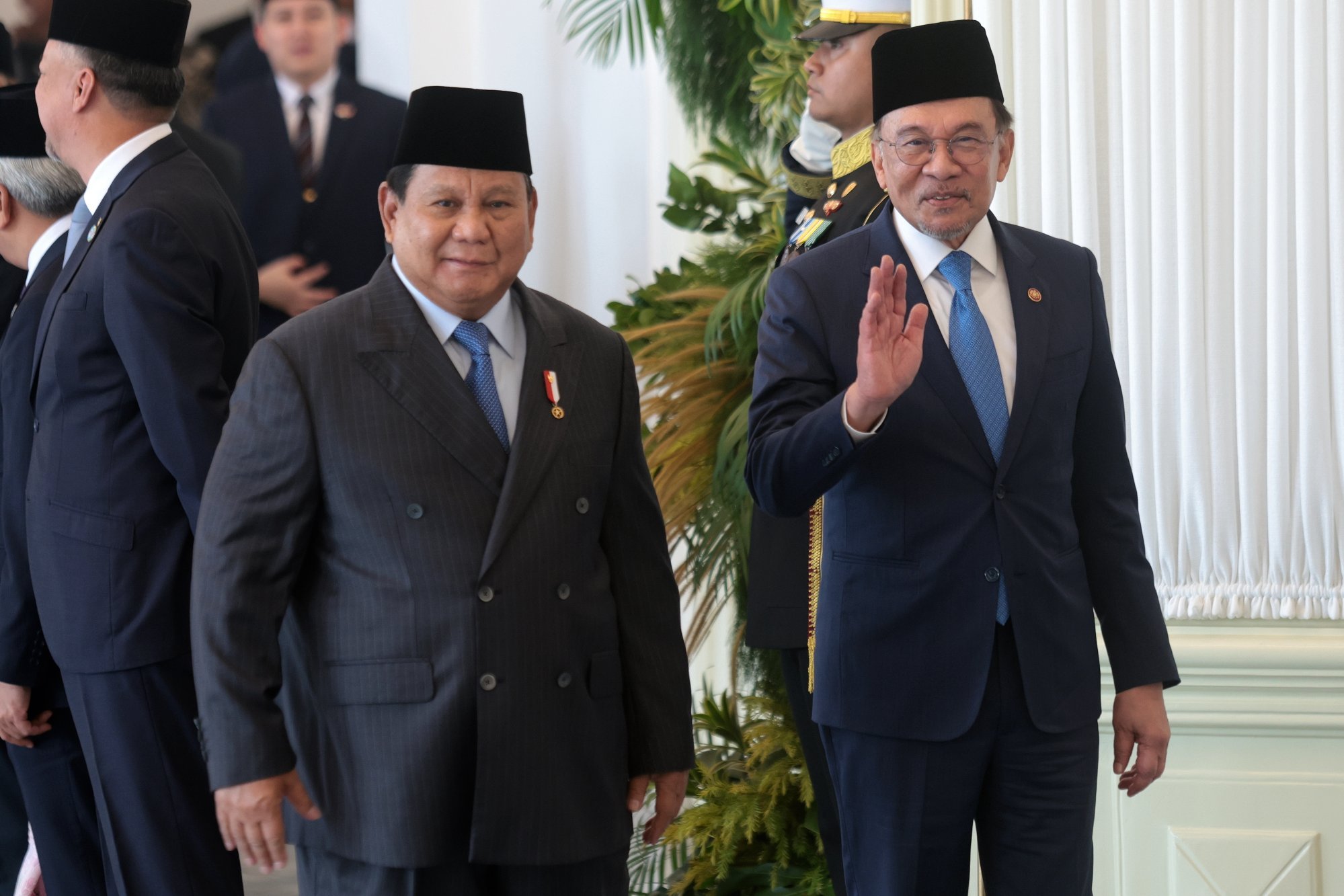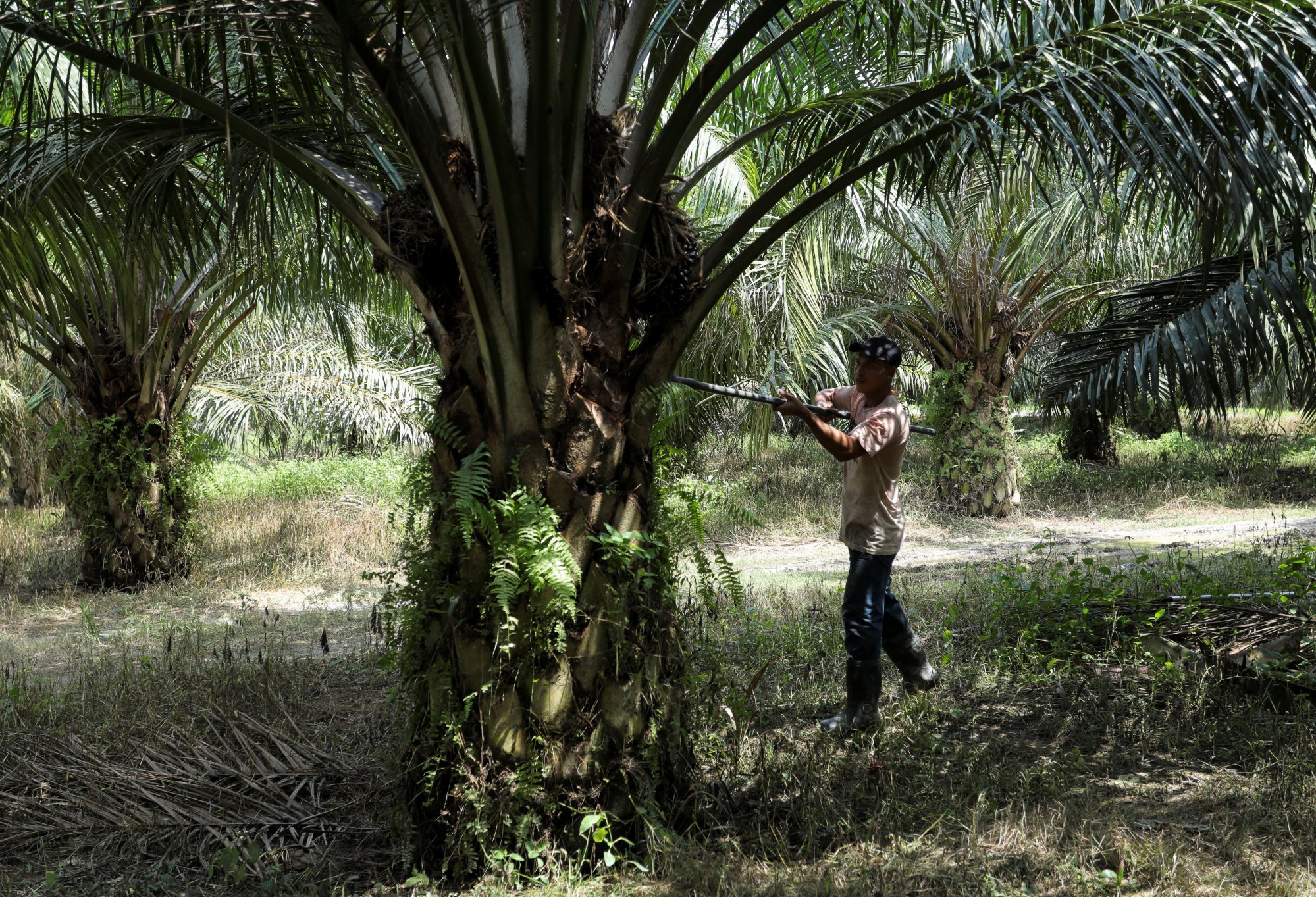Malaysia, Indonesia unite to protect palm oil industry, migrant workers
Both countries will work to ‘counter negative campaigns against palm oil’ amid efforts to boost growth in face of looming US tariffs

Indonesia and Malaysia have agreed to work together to counter negative campaigns against their vital palm oil exports and bolster protection for migrant labour, as the Southeast Asian neighbours brace themselves for slowing growth under looming US tariffs.
Southeast Asia’s export-reliant economies have launched multipronged attempts at boosting trade with existing and new partners, as they scramble to secure trade deals with Washington in a bid to soften the blow from punishing tariffs scheduled to kick in on August 1.
Indonesia and Malaysia are the world’s two largest producers of palm oil, accounting for about 85 per cent of global supply for the ubiquitous ingredient used in everything from chocolate spreads to cosmetics and pharmaceuticals.
But demand has largely been limited to traditional markets like India and China, as environmental lobbyists – particularly in the West – accuse palm oil plantations of driving deforestation and biodiversity loss.

“Both countries agreed to continue to collaborate on promoting sustainable palm oil and counter negative campaigns against palm oil,” Indonesia’s President Prabowo Subianto and Malaysia’s Prime Minister Anwar Ibrahim said in a joint statement on Tuesday after their annual bilateral consultation in Jakarta.
Indonesia and Malaysia have been clashing with the European Union (EU) over the planned implementation of the bloc’s deforestation regulation (EUDR), which the Southeast Asian nations have said unfairly targets oil palm producers and places undue pressure on smallholders.
In January, the World Trade Organization (WTO) ruled that the EUDR was discriminatory against palm oil-based biofuels from Indonesia compared to similar products produced from other vegetable oils produced in the EU, such as rapeseed and sunflower oil.
In a separate WTO ruling last year, the EU was also found to have taken a discriminatory approach to Malaysian palm oil, although the panel upheld the bloc’s right to pursue measures to protect the environment.
Palm oil is a major revenue contributor to both countries, accounting for about 3 per cent of output for Malaysia and as high as 4.5 per cent for Indonesia.
A hit to palm oil demand would add to the already dreary economic outlook.
Bank Negara Malaysia on Monday revised its 2025 growth forecast to between 4 and 4.8 per cent, down from the initial range of 4.5 to 5.5 per cent on expectations of slower US demand even if Malaysia manages to negotiate a favourable tariff rate of below 20 per cent.
The combination of US tariffs and weakening domestic consumption and output has also forced Indonesia’s government to take pre-emptive action, with Finance Minister Sri Mulyani Indrawati pledging to roll out stimulus packages to stay on track towards a 5 per cent growth target this year.

Anwar and Prabowo also agreed to improve the protection of basic rights, welfare and livelihood of Indonesian migrant workers in Malaysia, urging officials in both countries to “iron out any impediments” in easing the employment of Indonesian workers.
Unhandled type: inline-plus-widget {“type”:”inline-plus-widget”}
Indonesia is among the largest suppliers of labour to Malaysia, which relies heavily on migrant labour across sectors such as construction, plantations and domestic help.
There are an estimated 1.5 million Indonesians currently employed in Malaysia, according to Indonesian government statistics.
But interest among Indonesians in working in Malaysia has plummeted in recent years due to regular reports of abuse and poor treatment of migrant workers.
Both Prabowo and Anwar agreed that their governments would review existing agreements on migrant worker recruitment to include a mechanism “to address all issues pertaining to all Indonesian migrant workers in a comprehensive manner”.